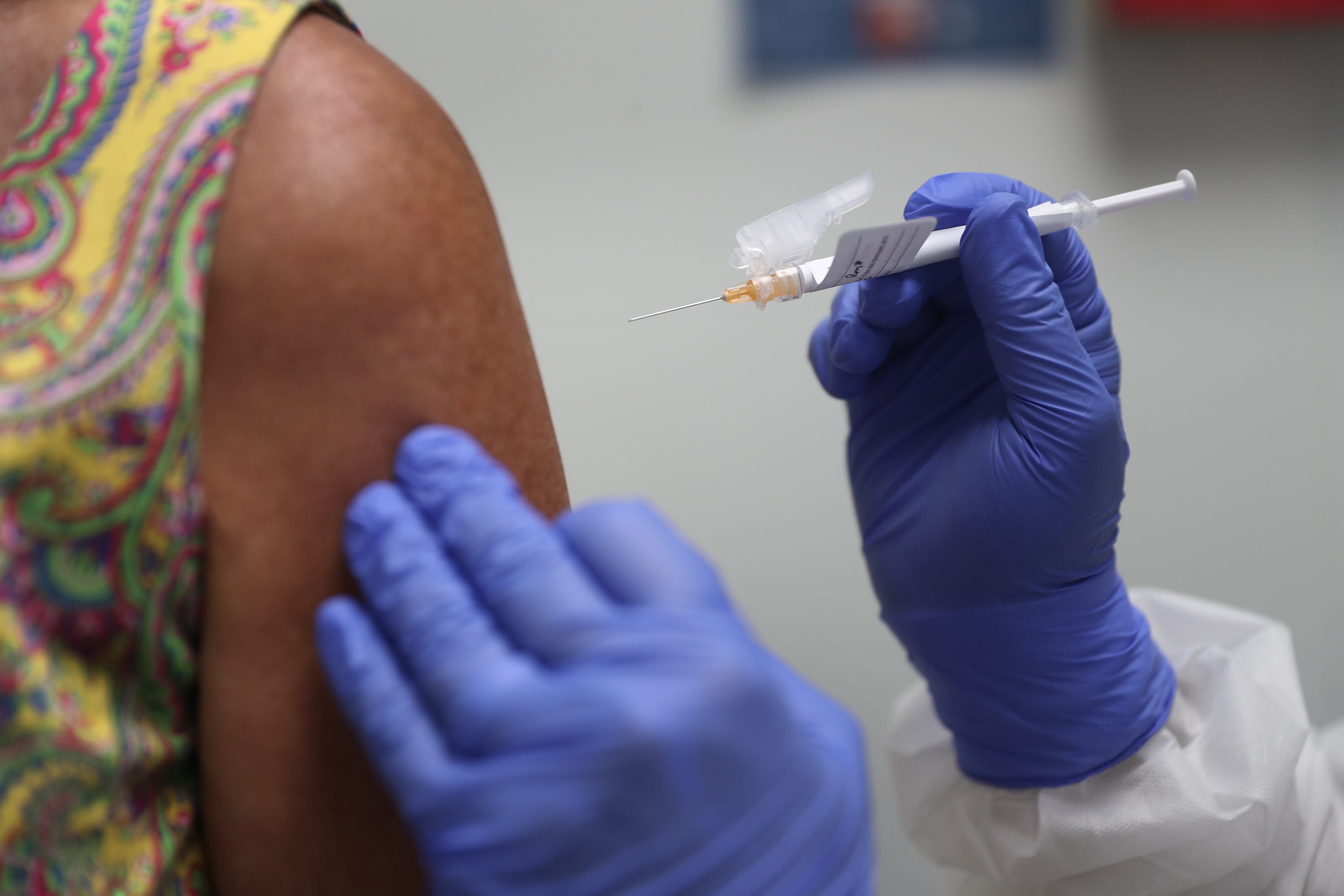
Lisa Taylor receives a Covid-19 vaccination from RN Jose Muniz as she takes part in a vaccine study at Research Centers of America on August 07, 2020 in Hollywood, Florida.
Joe Raedle | Getty Images
Around 74% of adults globally are wiling to get immunized against the coronavirus if a vaccine became available — but that may not be enough to defeat the fast-spreading virus, according to a survey released Tuesday.
The survey by World Economic Forum and market research firm Ipsos polled close to 20,000 adults across 27 countries over two weeks — between July 24 and Aug. 7 this year.
A majority of respondents from all the countries expressed their willingness to get a vaccine, the survey results showed. China was the most enthusiastic country with 97% of respondents indicating they would want to be vaccinated, while Russia was the least willing with only 54% interested to do so, the survey found.
Still, it’s concerning that roughly one-quarter of people globally not intending to get a vaccine, said an expert from the World Economic Forum.
“The 26% shortfall in vaccine confidence is significant enough to compromise the effectiveness of rolling out a COVID-19 vaccine,” said Arnaud Bernaert, head of shaping the future of health and healthcare at the WEF.
Covid-19 is the formal name of the coronavirus disease, which has infected more than 25.4 million globally and killed over 850,500, according to data compiled by Johns Hopkins University.
The most frequently cited reason for not wanting a vaccine is concern about the side effects, according to the survey findings. Other factors mentioned by respondents include their perception that a vaccine may not be effective and they’re not sufficiently at risk from the virus, the survey showed.
Here are some other highlights from the survey:
- In the U.S., the country with the highest number of cumulative cases and deaths, 67% of respondents said they would get a vaccine;
- Less than half — or around 41% — of respondents globally expect a vaccine to be available to the public this year;
- China was the most optimistic about the availability of a vaccine in 2020, while respondents from Poland and Japan showed the most skepticism;
- Only 34% of Americans expect a coronavirus vaccine to be ready this year.
Measures to contain the virus, such as border closures and restrictions on movements, have caused a slump in global economic activity. Many governments and people now pin their hopes on a vaccine to help restore some normalcy in the world, but the World Health Organization has warned that a vaccine alone may not end the pandemic.
There are at least 30 potential vaccines currently in clinical trials, according to the WHO.
— CNBC’s Berkeley Lovelace Jr. contributed to this report.
